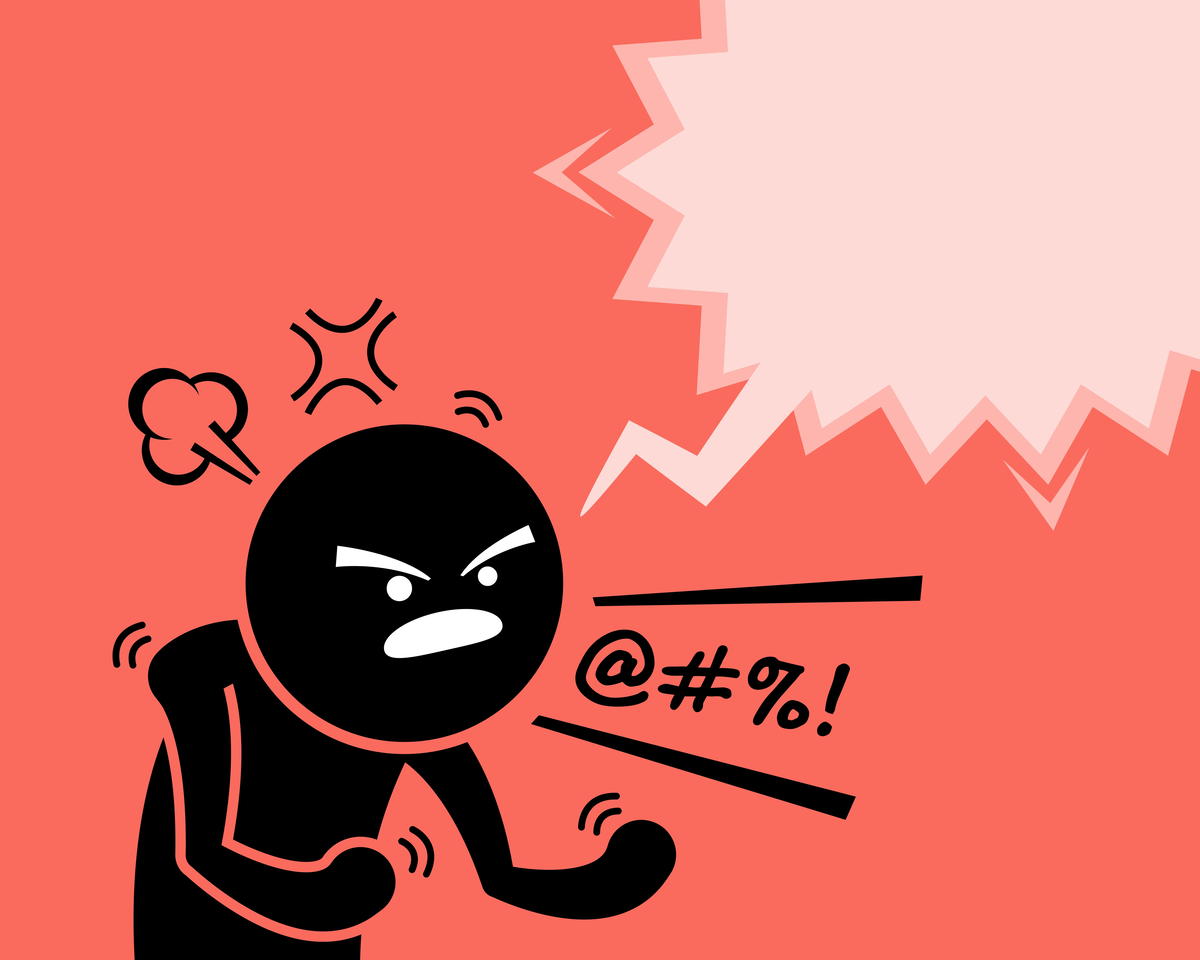Understanding Anger
 Anger is a normal emotion that everyone experiences from time to time. However, if a person feels unable to control their anger, it can cause problems in relationships and at work. It might also affect their quality of life.
Anger is a normal emotion that everyone experiences from time to time. However, if a person feels unable to control their anger, it can cause problems in relationships and at work. It might also affect their quality of life.
Anger is an integral part of the body's "fight, flight, or freeze" system, which helps protect us from threats or danger.
However, high levels of unresolved anger may have a negative impact on health. According to the American Psychological Association, anger has links with inflammation in older adults. This could lead to chronic diseases.
Research from 2015 suggests that the overall lifetime prevalence of intense, inappropriate, or poorly controlled anger in the general population in the United States is 7.8%. Anger seems to affect more men than women, and it also seems more prevalent among younger adults.
Causes of feeling angry
Problems relating to a specific person may trigger feelings of anger.
People can become angry for many reasons, and everyone experiences anger differently.
Events or circumstances that cause an angry outburst in one person may not affect another person at all.
Someone might experience anger if they feel:
- attacked or threatened
- deceived
- frustrated or powerless
- invalidated or unfairly treated
- disrespected
Circumstances that may trigger feelings that lead to anger include:
- problems that a specific person, such as a coworker, partner, friend, or family member, has caused
- frustrating events, such as being stuck in a traffic jam or having a flight canceled
- personal problems that cause extreme worry or ruminating
- memories of traumatic or infuriating events
- physical or psychological pain
- environmental conditions, such as uncomfortable temperatures
- feeling that goals are unachievable
- personal offense due to unfair treatment, insults, rejections, and criticism
Signs and symptoms
The signs and symptoms of anger can vary from person to person. Anger affects the mind and body in a variety of ways.
Effects that anger may have on the body include:
- increased heart rate
- feeling hot
- sweating
- tightness in the chest
- stomach-churning
- clenching jaws or grinding teeth
- tense muscles
- shaking or trembling
- leg weakness
- feeling faint
Effects that anger may have on the mind include feeling:
- anxious, nervous, or unable to relax
- easily irritated
- guilty
- sad or depressed
- resentful
- humiliated
- like striking out physically or verbally
Other behaviors and feelings associated with anger include:
- pacing
- becoming sarcastic
- losing a sense of humor
- shouting
- yelling, screaming or crying
- acting in an abusive manner
- craving substances such as alcohol or tobacco
Physical, emotional, and behavioral cues can help a person recognize when they are experiencing the intermediate stages between low and extreme anger levels.
It is important to note that anger and aggression are different things. Anger is an emotion, whereas aggression is related to how a person behaves.
Not everyone with anger behaves aggressively, and not everyone who acts aggressively is angry.
Diagnosis
Anger may or may not be associated with many mental health conditions, including:
- antisocial personality disorder
- anxiety
- attention deficit hyperactivity disorder
- bipolar disorder
- borderline personality disorder
- conduct disorder
- depression
- intermittent explosive disorder
- narcissistic personality disorder
- obsessive-compulsive disorder
- oppositional defiant disorder
- schizophrenia
Management strategies
Pausing before reacting can help a person control their anger. Meditation also helps
Everyone has a reaction to anger, but some techniques can help ensure the anger does not get out of control.
Strategies for managing anger include:
Contact Dr. Schwartz at [email protected]
- Recognizing the warning signs. Being aware of the changes in the body, emotions, and behaviors that result from anger can help someone decide how they want to react to a situation before they act.
- Pausing before reacting. Walking away from the situation can buy the person some time to think and take back control.
- Counting to 10. Taking a few seconds to count slowly to 10 can reduce the intensity of the anger.
- Releasing tension in the body. To release tension, unclench the jaw, drop the shoulders, and uncross the arms and legs. Roll the shoulders back and stretch the neck to either side if holding tension here.
- Listening. It can be easy to jump to conclusions when angry. If having a heated discussion, take some time to stop and listen before replying.
- Exercising. Doing cardiovascular exercises such as running, cycling, or swimming can help release the energy that might otherwise become aggression.
- Finding a distraction. Listening to music, dancing, going for a walk, writing in a journal, or just taking a shower can all help prevent anger from escalating.
- Changing negative thought patterns. In the heat of the moment, the situation can seem much worse than it really is. A method called cognitive restructuring can help people challenge and replace angry thoughts.
- Using relaxation techniques. Using relaxation strategies, such as deep breathing and progressive muscle relaxation, may help alleviate feelings of anger.
Treatment and therapy
http://www.allanschwartztherapy.net
A family doctor will make an assessment and determine whether a person's difficulties with anger are related to a physical condition or a mental health issue.
If it is a mental health concern, a doctor will most likely refer the person to a psychologist, psychiatrist, or counselor.
Making a thorough diagnosis can help them recommend the best line of treatment.
Possible treatments for difficulties with anger management include:
- psychotherapy. Contact Allan Schwartz, Ph.D., LCSW at dransphd@aol
- cognitive-behavioral therapy
- counseling
- anger management classes
Contact Dr. Schwartz at [email protected]
